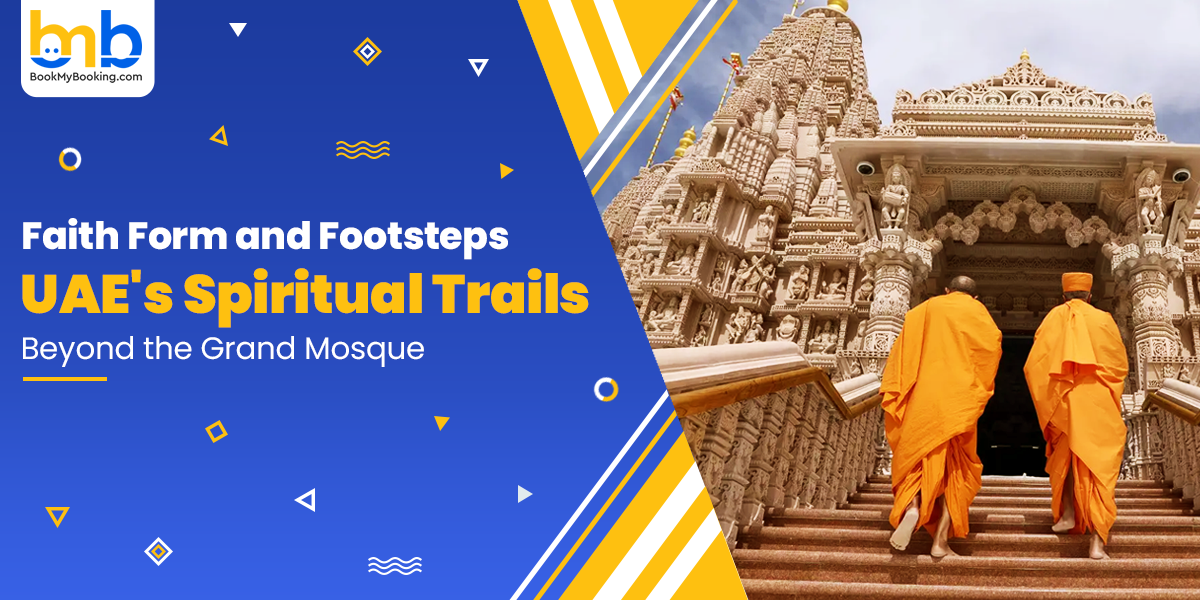The best religious and heritage spiritual sites to visit in the UAE offer tourists a unique opportunity for travellers seeking profound experiences. The UAE (United Arab Emirates) is a destination of spiritual sites with distinct histories and actual meanings. Venturing throughout this spiritual pilgrimage will take you to various destinations, including Ras al Khaimah, where you can experience both ancient and modern places of worship.
As you delve into these sacred spaces for spiritual tourism in the UAE, it's essential to understand local customs and traditions when visiting religious sites. A country renowned for its sky-high towers, the United Arab Emirates, or UAE, has many temples to explore.
These temples represent their conspicuous features. They are clear evidence that the UAE is committed to peace. In this UAE spiritual travel guide, you will learn more about famous temples in the UAE, where tradition goes hand in hand. Every temple in the UAE is artistically constructed to attract tourists from across the world. This spiritual guide ensures that your spiritual journey in the UAE is both fulfilling and enriching.
Temples in the UAE pilgrimage trail offer a unique cultural and religious experience. Spread across the country, these temples provide a glimpse into the varied heritage of the region. The UAE is home to various famous, popular, and essential temples that attract both locals and tourists. However, it's an Islamic tolerance and inclusivity. This blog details the most revered temples and ancient mosques in the UAE, showcasing their cultural and spiritual relevance to residents and visitors.
Read More: Historical Places in Dubai
Top Must-Visit Spiritual Sites in The UAE
Experience the cultural fusion of old and new by visiting these sacred sites and observing local etiquette and customs as you explore. Here, we have listed the top heritage spiritual sites in the UAE, promoting unity and understanding among different communities. The United Arab Emirates (UAE) is a country with a rich cultural heritage and a diverse population. This is reflected in the numerous mosques and religious sites that can be found throughout the country. Visitors have the opportunity to explore these beautiful and historic Islamic heritage sites in the UAE and learn about the country's Islamic culture and traditions. Do not miss this.
1. Sheikh Sultan Bin Zayed Mosque in Abu Dhabi
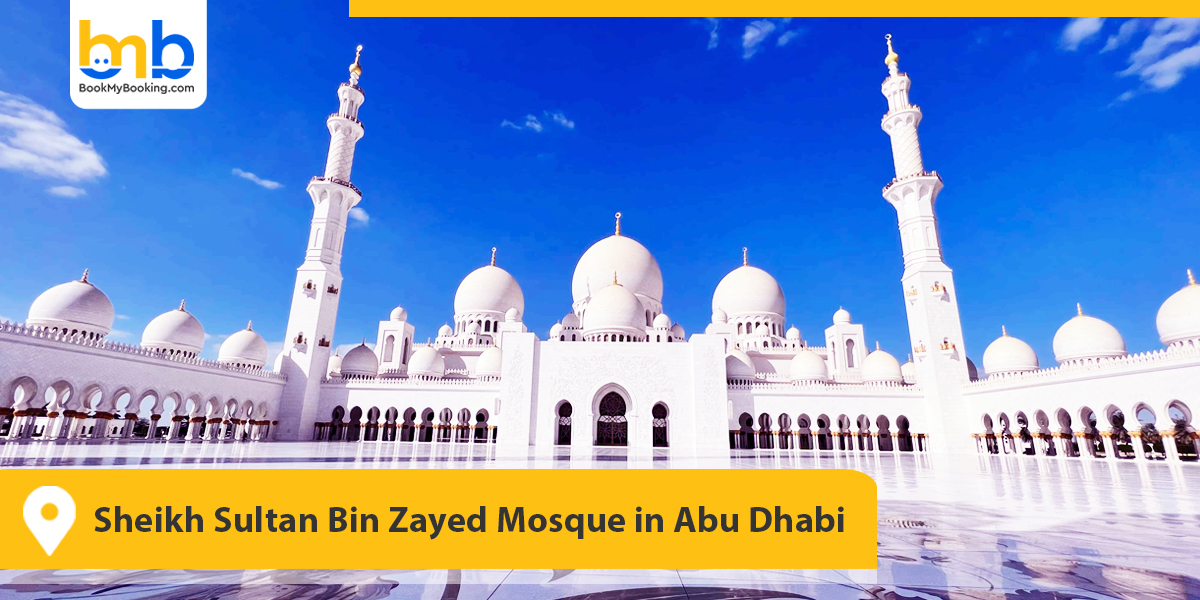
One of the most iconic and well-known mosques in the UAE. It is the Sheikh Zayed Grand Mosque in Abu Dhabi. This magnificent mosque, which can accommodate over 40,000 worshippers, is known for being the largest and most beautiful ancient mosque in the UAE. Visitors are welcome to explore the mosque's many courtyards, gardens and halls, and guided tours are available to learn more about the mosque's history and architecture.
Read More: UAE City Tour
2. Jumeirah Mosque in Dubai
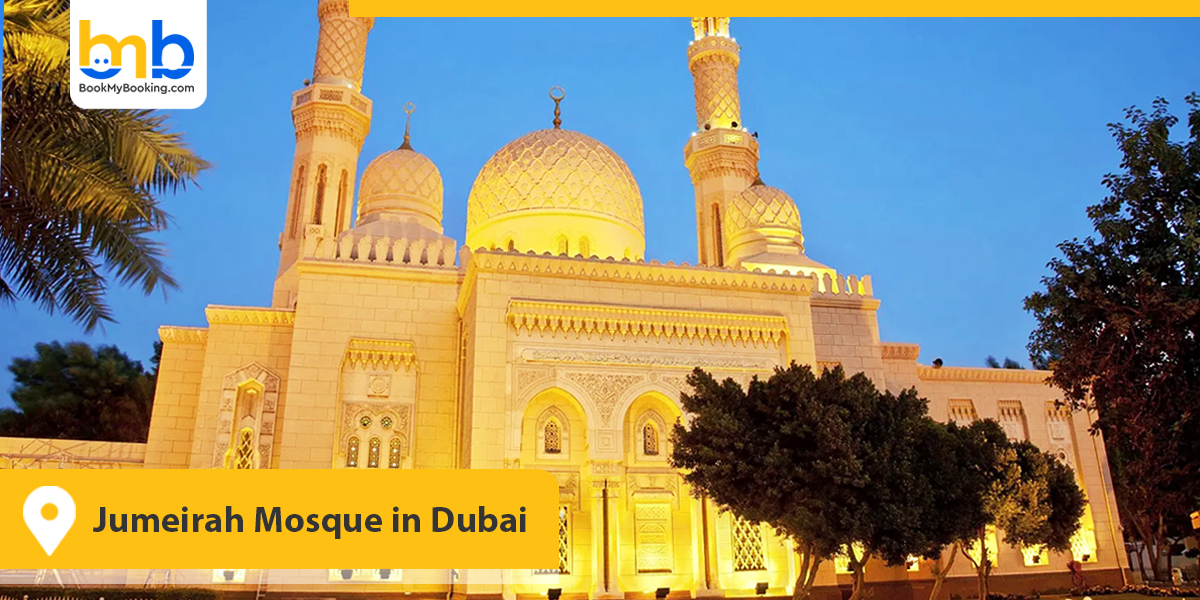
Dubai's stunning mosque in the UAE is the Jumeirah Mosque. This mosque is especially noteworthy for its unique UAE sacred architecture. The architecture combines traditional Islamic design with modern elements. The mosque is open to visitors on select days of the week, and guided tours are available to provide an in-depth understanding of the mosque's history and Islamic culture.
3. Al Qasimi Mosque in Sharjah
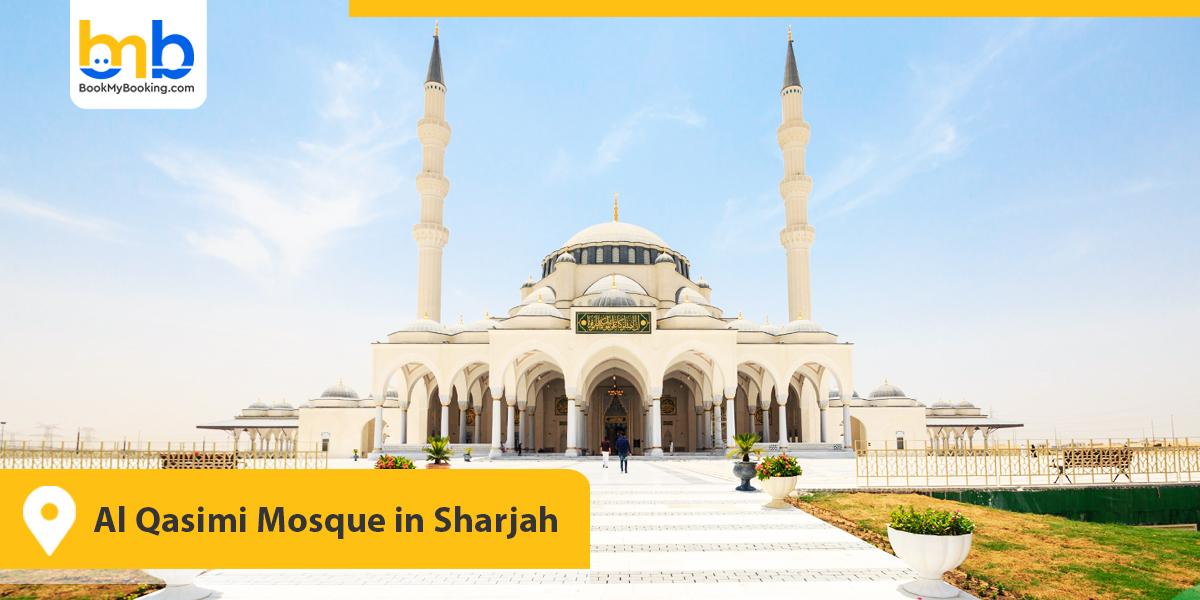
The Sheikh Saud Al Qasimi Mosque in central Sharjah is a mindblowing example of modern Islamic architecture, blending traditional design with contemporary elegance and promoting religious tourism in the UAE. Completed in 2013, it features soaring domes, exquisite Arabic calligraphy, marble inlays, ornate chandeliers, and towering minarets that punctuate the skyline. Set within landscaped gardens and open courtyards, it provides serene spaces for prayer and reflection. The mosque accommodates daily and Friday prayers, as well as Ramadan services, and hosts interfaith tours that embody Sharjah's spirit of cultural dialogue and spiritual inclusivity at the hilltop shrines of the UAE.
4. Guru Nanak Darbar Gurudwara in Dubai
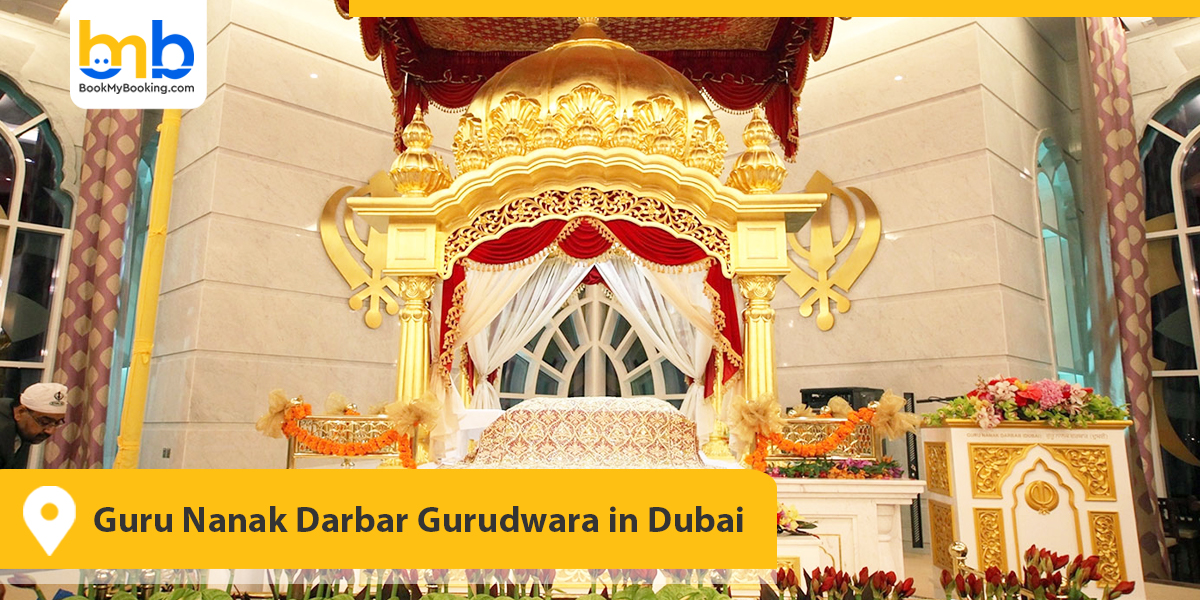
The Guru Nanak Darbar in Jebel Ali Dubai is the Gulf's first purpose-built Sikh temple, officially opened in 2012. Designed to serve Dubai's vibrant Sikh community and visitors of all faiths, it features a grand prayer hall, a stunning gold-domed exterior, and elegantly carved marble interiors, providing a serene spiritual retreat in the UAE. Beyond spiritual services, the gurudwara offers community meals, known as langar, 24/7, free of charge, symbolising Sikh values of equality and service. Its multi-story facility includes accommodation for pilgrims, a library and classrooms for Punjabi and religious education. Open to everyone, it serves as a welcoming hub for worship, learning, and cultural connection, depicting cultural heritage trails in the UAE.
Read More: Best Places To Visit In UAE
5. Shree Krishna Haveli Temple in Dubai
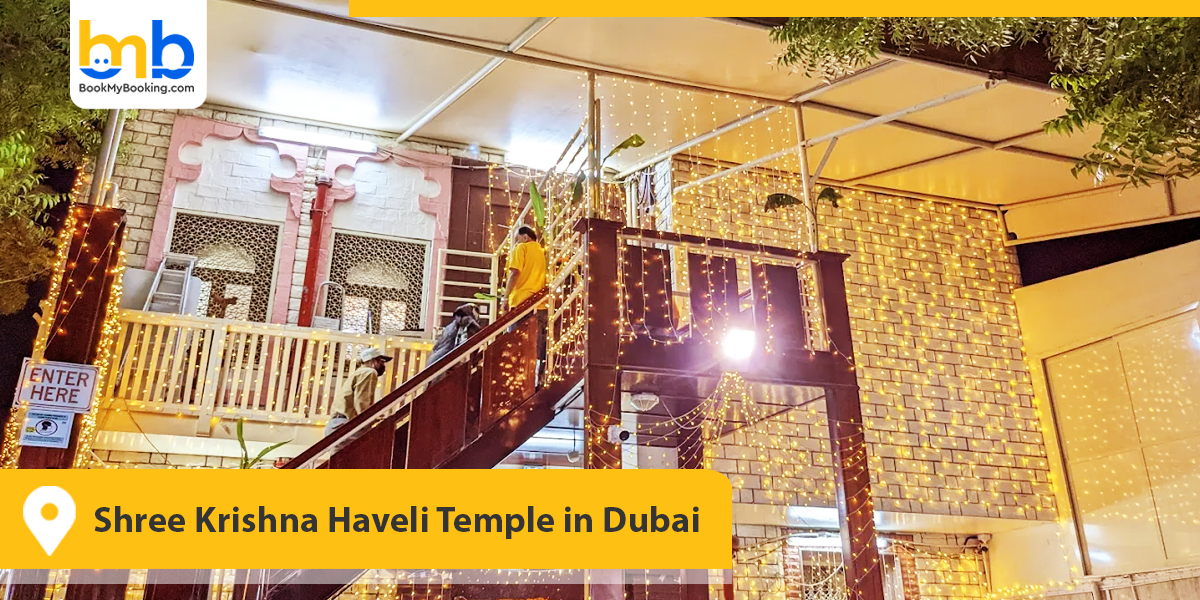
Shree Krishna Haveli in Dubai is a well-known Hindu temple recognised for its architecture and vibrant festivals.
It is situated in Bur Dubai and attracts a large number of devotees during major Hindu celebrations, such as Janmashtami.
The temple, one of the best peaceful travel spots in the UAE, offers people a serene retreat for meditation and prayer amidst the city's bustle. Even the detailed carvings and rich artwork inside the temple are impressive, adding to its spiritual ambience. It also serves as a cultural centre where visitors can learn about Hindu traditions and participate in various religious activities, promoting cultural and religious harmony in the UAE.
6. Shiva Temple in Dubai
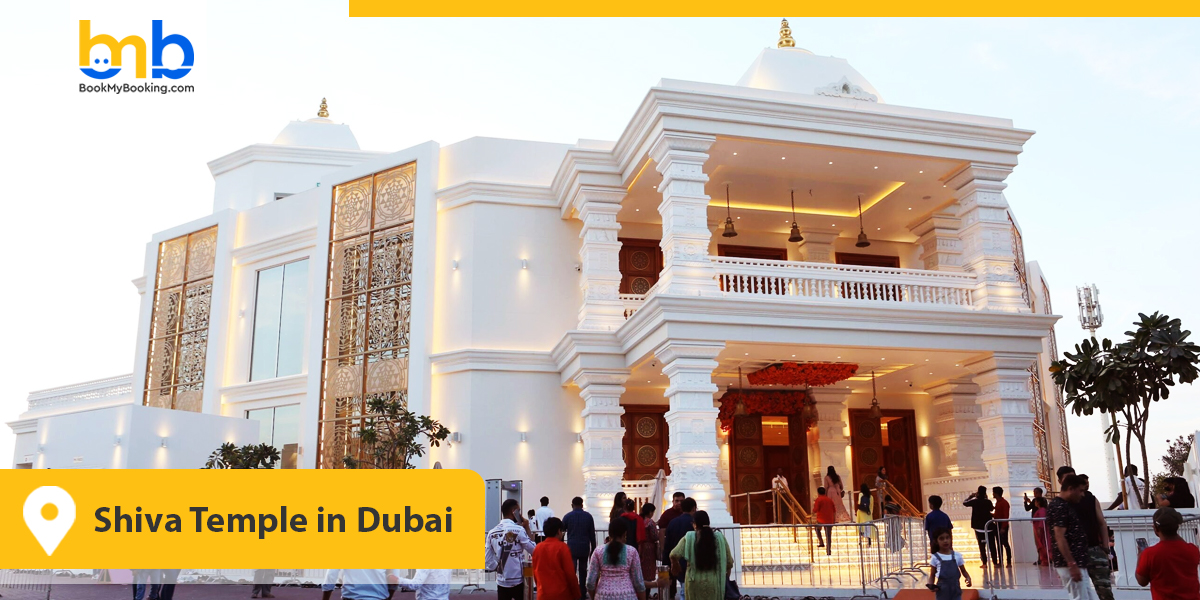
The Shiva Temple in Dubai is one of the oldest Hindu temples in the UAE. The temple situated in Dubai is dedicated to Lord Shiva.
It attracts a vast number of devotees, especially during Maha Shivratri. The temple is one of the best historic religious landmarks in the UAE, and its regular rituals provide a soothing environment for devotees. The temple also includes smaller shrines dedicated to other Hindu deities, thus making it a comprehensive spiritual destination.
The temple offers regular community services and cultural programs that contribute to the social and cultural fabric of the local Hindu community, making it a popular destination for spiritual escapes in the UAE.
Read More: Baps Hindu Mandir Abu Dhabi
7. Mahamevnawa Buddhist Temple in Abu Dhabi
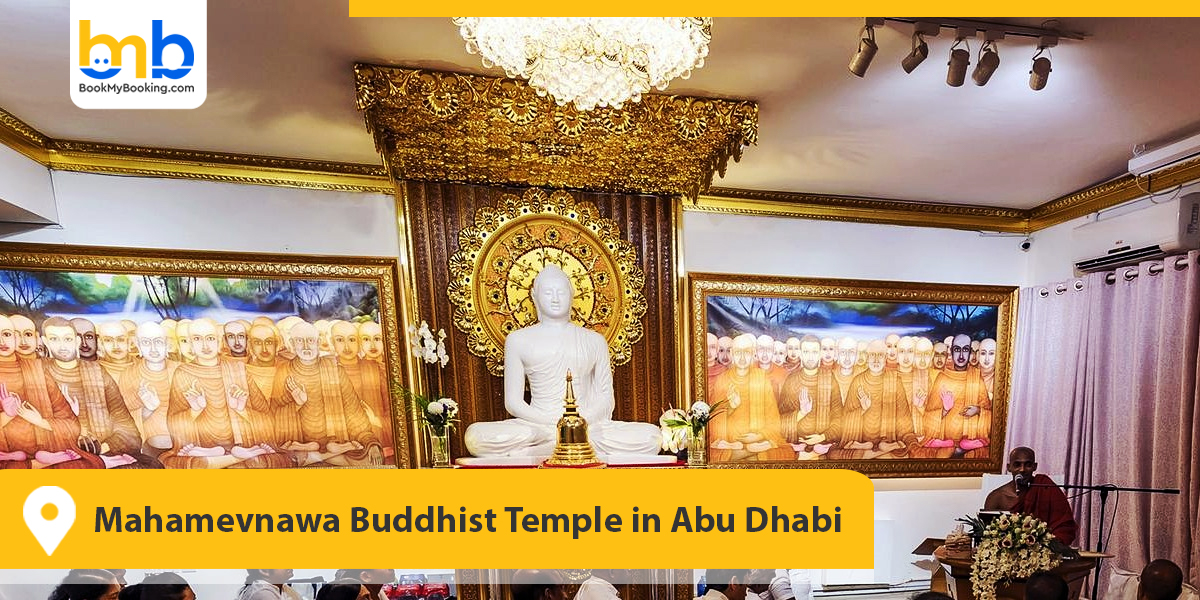
The Mahamevnawa Buddhist Temple in Abu Dhabi caters to the spiritual needs of the Buddhist community in the city.
This Buddhist temple provides a serene environment ideal for meditation and learning. Regular sessions and community events promote peace and harmony among its visitors. The temple is an offbeat UAE travel destination that also offers various programs and classes on mindfulness meditation and Dharma discussions, enhancing the spiritual growth of its attendees. The lush greenery and calming surroundings of the temple create an ideal setting for reflection and inner peace, making it a sanctuary for those seeking spiritual comfort and solace, making it a top choice for spiritual escapes in the UAE.
8. BAPS Hindu Mandir in Abu Dhabi
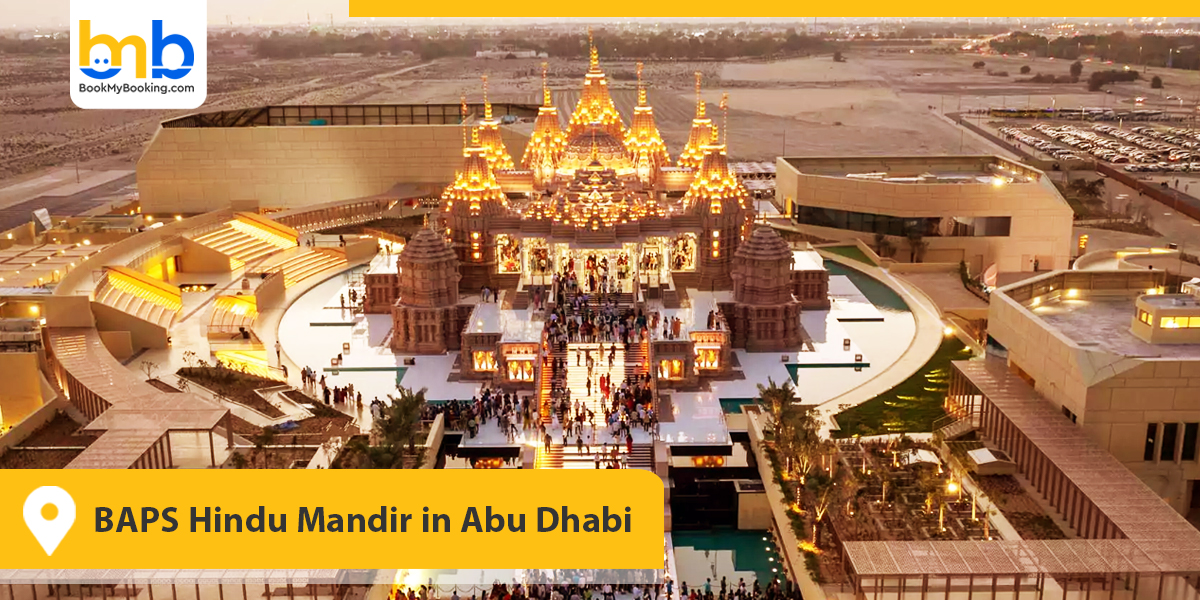
The 'BAPS' Hindu Temple in Abu Dhabi is one of the most significant Hindu temples in the UAE. This magnificent Swaminarayan temple features impressive Hindu sacred architecture in the UAE with stunning carvings and sculptures. It aims to serve as a centre for spiritual learning and cultural exchange, offering a space for worship, community activities, and educational programs. The temple's architecture features facilities for yoga, meditation, and community gatherings, promoting overall well-being and cultural understanding. Its creation symbolises the UAE's commitment to cultural diversity, religious tolerance and faith tourism in the Middle East.
9. ISKCON Temple in Dubai
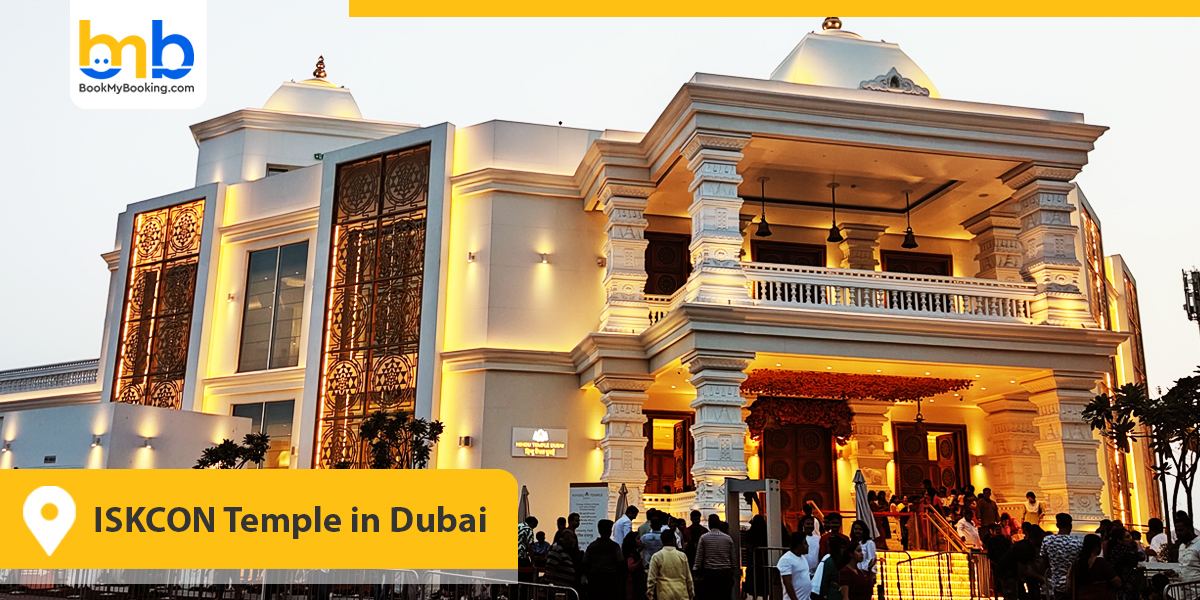
The Dubai ISKCON Temple in the UAE is part of the International Society for Krishna Consciousness. The temple serves as a spiritual centre for worshippers of Lord Krishna, offering regular prayers, teachings, and community events. The temple is a hidden spiritual site in the UAE that hosts vibrant festivals and cultural programs, attracting a diverse crowd and enhancing the spiritual atmosphere. Devotees and visitors can participate in Kirtan Bhagavad Gita classes and various cultural events that celebrate Hindu traditions. The temple engages in charitable activities, thus providing food and support ot those in need, reflecting the ISKCON movement's values of compassion and service.
10. Jain Temple in Dubai
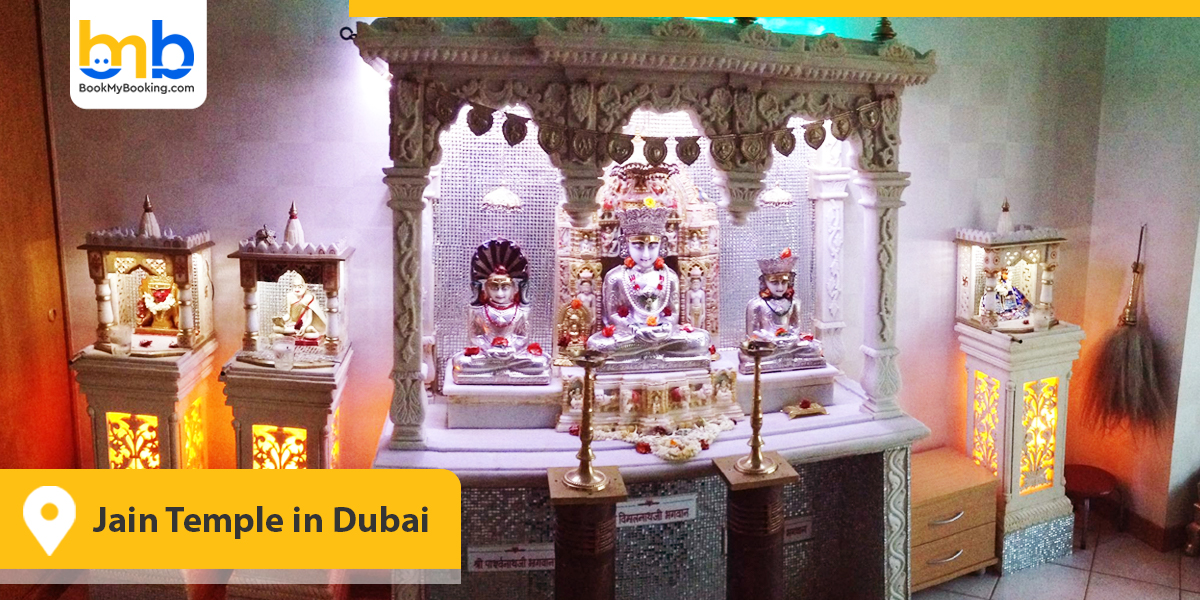
The Jain Temple in Dubai, also known as Dersasar, is the premier destination for spiritual tourism in the UAE, catering to the Jain community in the country. It provides a peaceful atmosphere for prayer and meditation, promoting the principles of Jainism. The temple's architectural beauty makes it a central spiritual hub for Jains in Dubai. The temple conducts regular religious ceremonies, discourses, and community events that foster spiritual growth and community bonding, promoting UAE pilgrimage trails.
Visitors can even learn about Jain philosophy, which emphasises non-violence, truth, and compassion. The temples' activities and programs work to instil these values in the community, thus promoting ethical living and spiritual awareness.
11. Siddi Vinayak Temple in Sharjah
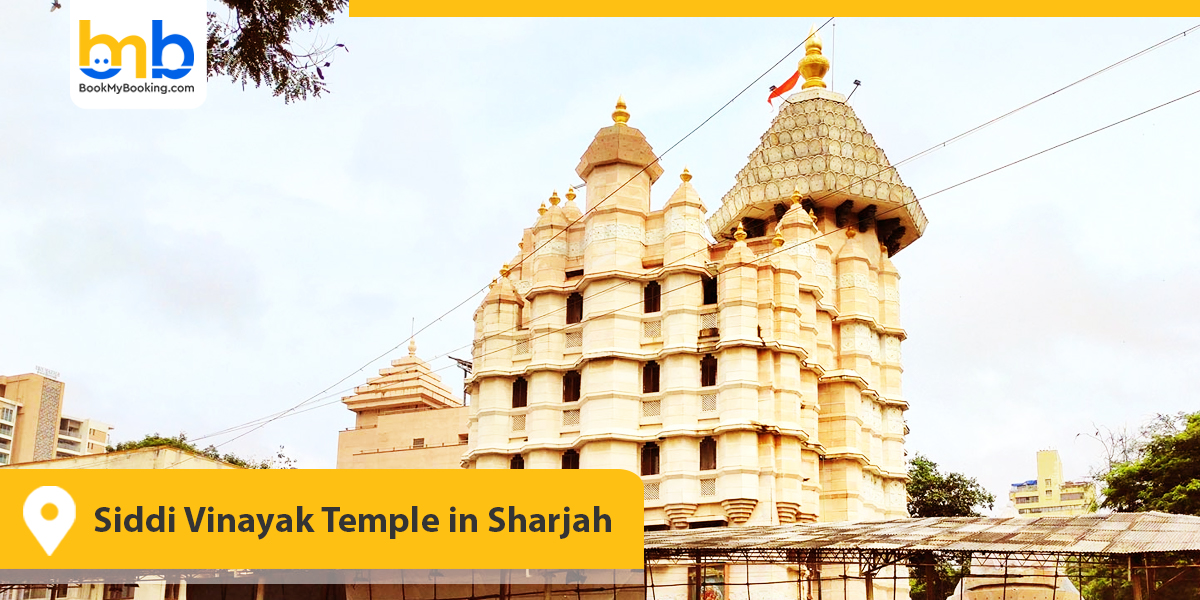
The Siddhi Vinayak Temple in Sharjah is dedicated to Lord Ganesha. This temple, with its rituals and festivals, serves as a leading centre for the Hindu community in the Sharjah emirate, offering a spiritual atmosphere for worship and community gatherings. As a result, it has become a popular spiritual destination. The temple, a heritage spiritual site in the UAE, organises various cultural events, educational programs, and religious ceremonies that engage the community and preserve Hindu culture. Devotees of Ganesha even celebrate major festivals like Ganesh Chaturthi with great enthusiasm, thereby enhancing the temple's role as a cultural and spiritual centre, promoting religious tourism in the UAE.
12. Shri Ayyappa Temple in Abu Dhabi
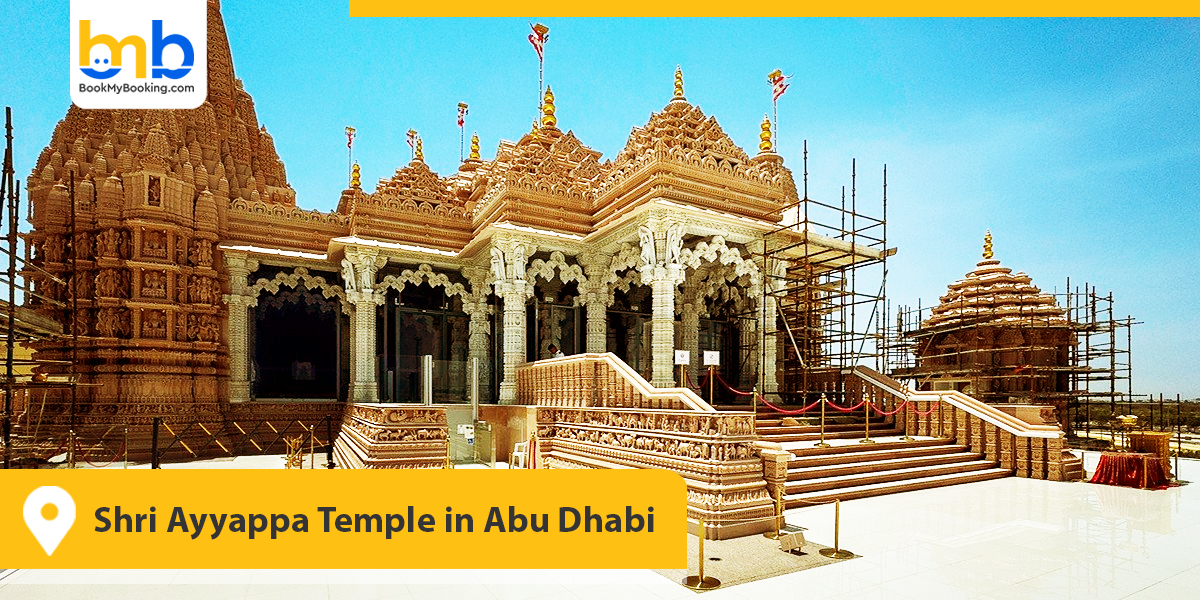
The Shri Ayyappa Temple in Abu Dhabi is a well-known temple for devotees of Lord Ayyappa. It regularly hosts worship services and festivals, attracting a large number of worshipers. The spiritual environment of the temple provides an ideal place for prayer and reflection, which enhances the spiritual experience of visitors and should be included in your UAE spiritual travel guide. The temple conducts social events, religious classes, and charitable activities that contribute to the social and spiritual welfare of its devotees. Pilgrims visiting the temple can participate in various rituals and ceremonies, which offer an experience of rich traditions and cultural heritage associated with Lord Ayyappa, making faith-based travel in the UAE a meaningful experience.
13. The Sai Baba Temple in Dubai
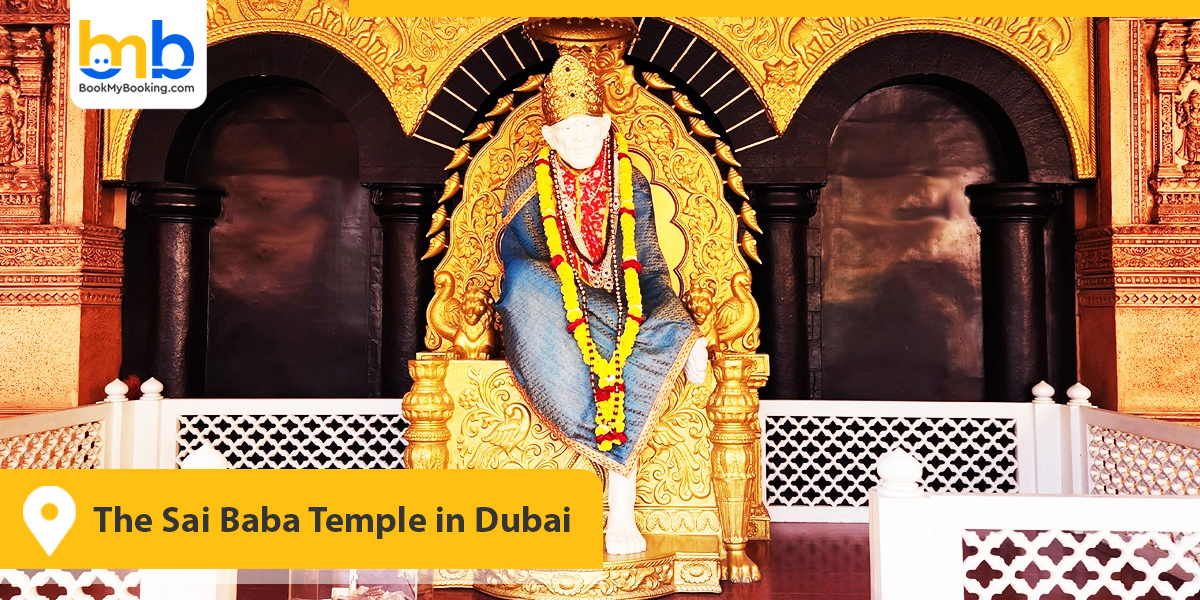
The Sai Baba Temple in Dubai is a particularly spiritual destination situated in the heart of the lively cultural centre in the UAE. This temple is dedicated to Shri Shirdi Sai Baba, combining artistic skills with spirituality. The temple is adorned with delicate carvings, reverent idols, and exquisite murals, creating a striking atmosphere of peace and devotion that offers tranquil travel experiences. The famous architecture is complemented by daily artis, intimate Bhajanas, and spiritual discourse, offering inspiration, making it one of the most remarkable temples in the United Arab Emirates.
Read More: Hidden gems in the UAE
14. SMVS -Temple in Dubai
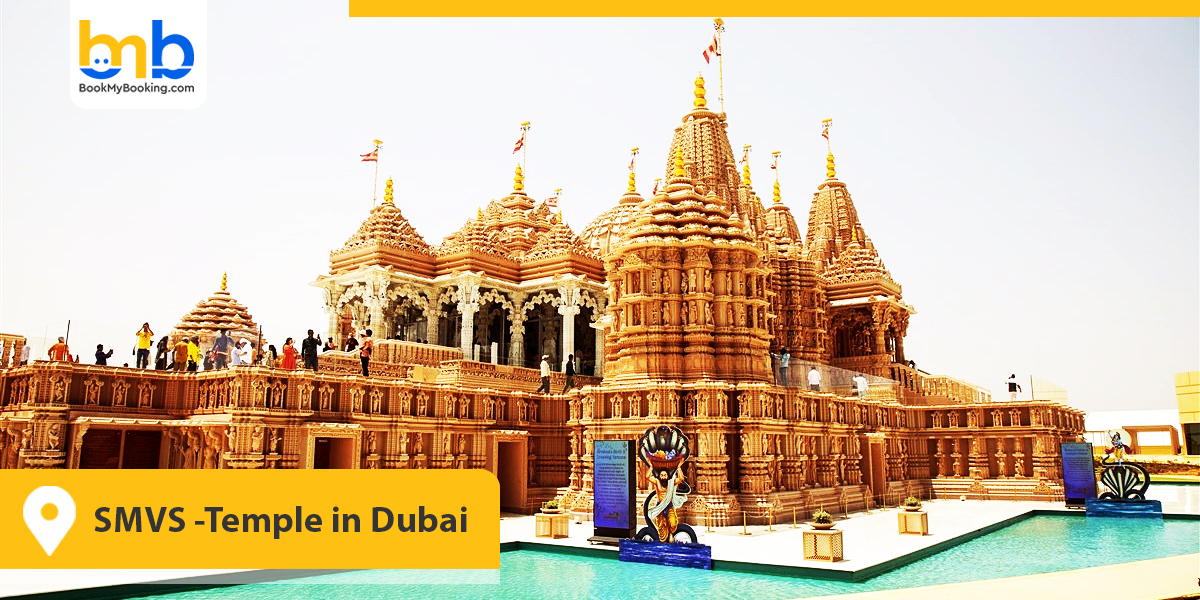
The SMVS temple in Dubai offers a serene ambience that blends traditional Hindu devotion with the vibrant spirit of Dubai. This temple is situated in the Al Qusais district and serves as a testament to both a spiritual heritage site in the UAE and a modern metropolis. The SMVS temple is open to visitors and devoted to participating in time-honoured rituals and daily artis, designed using traditional Hindu architectural techniques. The temple features carvings and sculptures, highlighting ancient traditions. The atmosphere of the temple, combined with the festive ambience, makes it an ideal backdrop for a rich spiritual experience.
15. The Al Bidyah Mosque in Fujairah
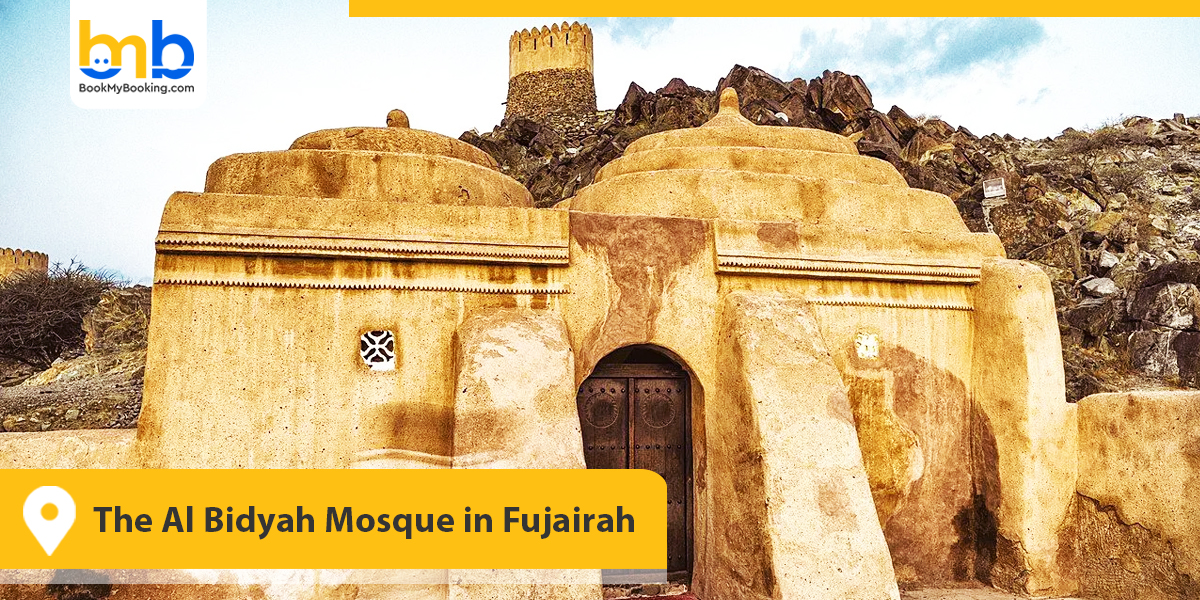
The Al Bidyah Mosque, UAE Sufi shrines, also known as the Ottoman Mosque, is the oldest in the UAE, dating back to the 15th century. This humble mosque, located in Fujairah, is still constructed from large mud and stone blocks, featuring a unique four-cupola structure. Despite its age, it remains a place of worship. The mosque is surrounded by archaeological sites and is situated in the Hajar Mountains. The ancient mosque in the UAE holds significant historical and spiritual value, as it connects visitors to the region's ancient roots in Islam and serves as a testament to the enduring faith.
16. King Faisal Mosque in Sharjah
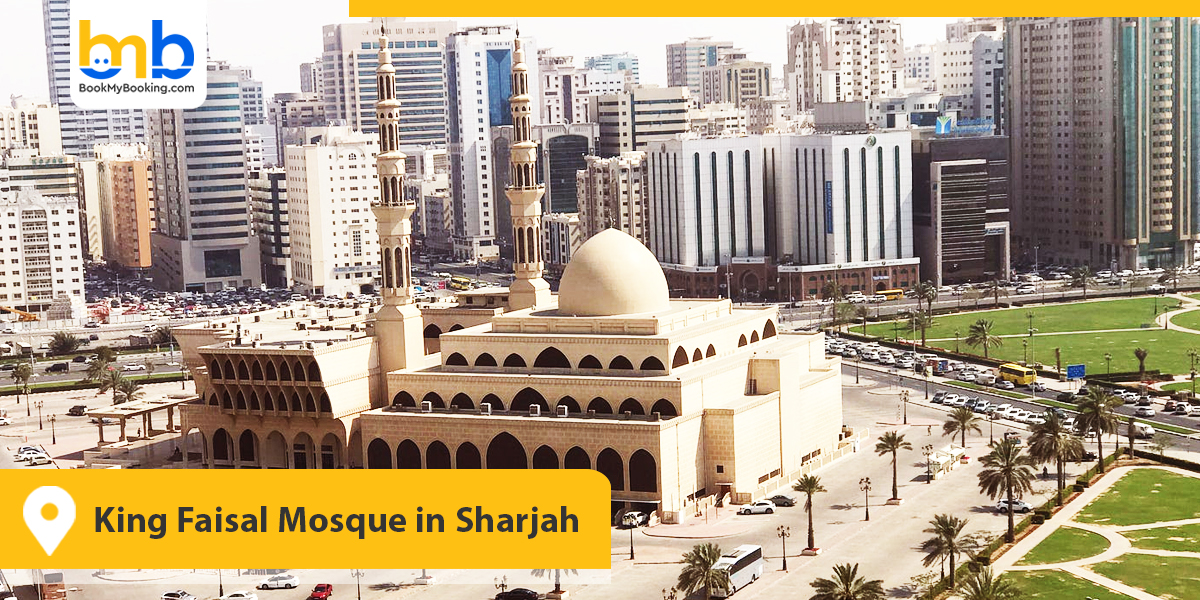
The mosque is named after King Faisal by Saudi Arabia. It is one of the largest mosques that are Islamic heritage sites in the UAE. Located in the centre of Sharjah, it covers an area of 12,000 square meters and accommodates around 17,000 worshipers. The design of the mosque merges traditional Islamic and modern elements. It features a library of over 7,000 books, making it a centre for spiritual and intellectual promotion. The colossal structure and open areas of the lesser-known mosques in the UAE create an atmosphere of humility and reflection, making it a milestone of religious and cultural significance.
17. St Joseph's Cathedral in Abu Dhabi
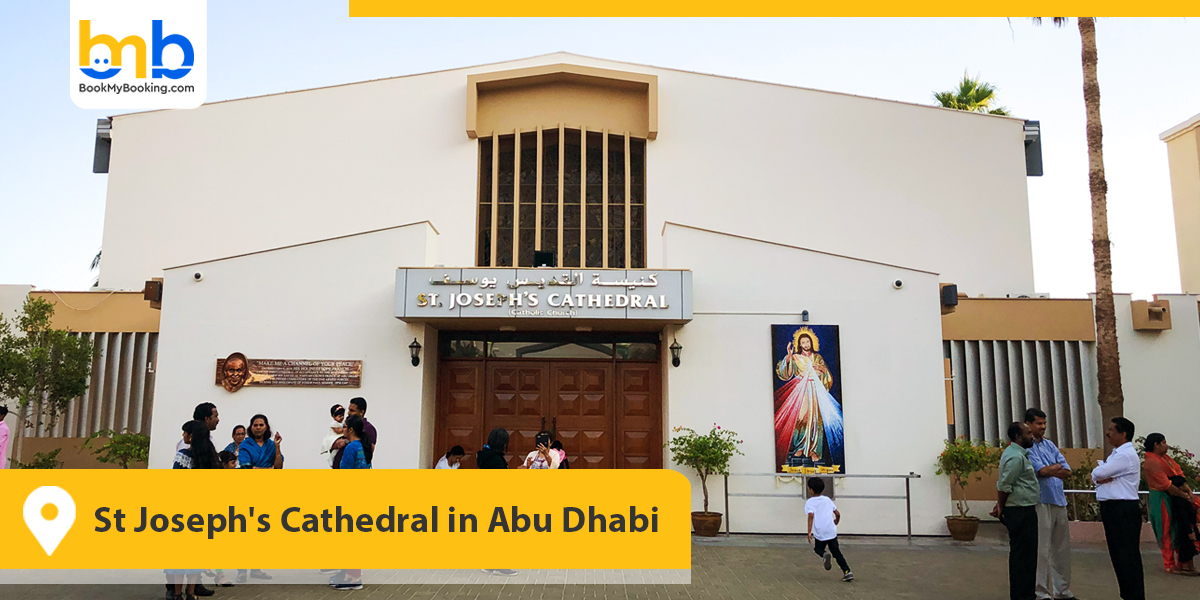
St. Joseph's Cathedral is one of the oldest churches in Abu Dhabi, serving the Catholic community since 1962. Situated in the city centre, it caters to a multi-ethnic congregation with Masses in various languages. The church, which promotes the UAE's pilgrimage trails, is welcoming and straightforward, focusing on spiritual service, unity, and peace. It plays a significant role in promoting interfaith harmony in the UAE, with a strong emphasis on spiritual service, unity, and peace.
18. Mary's Catholic Church in Dubai
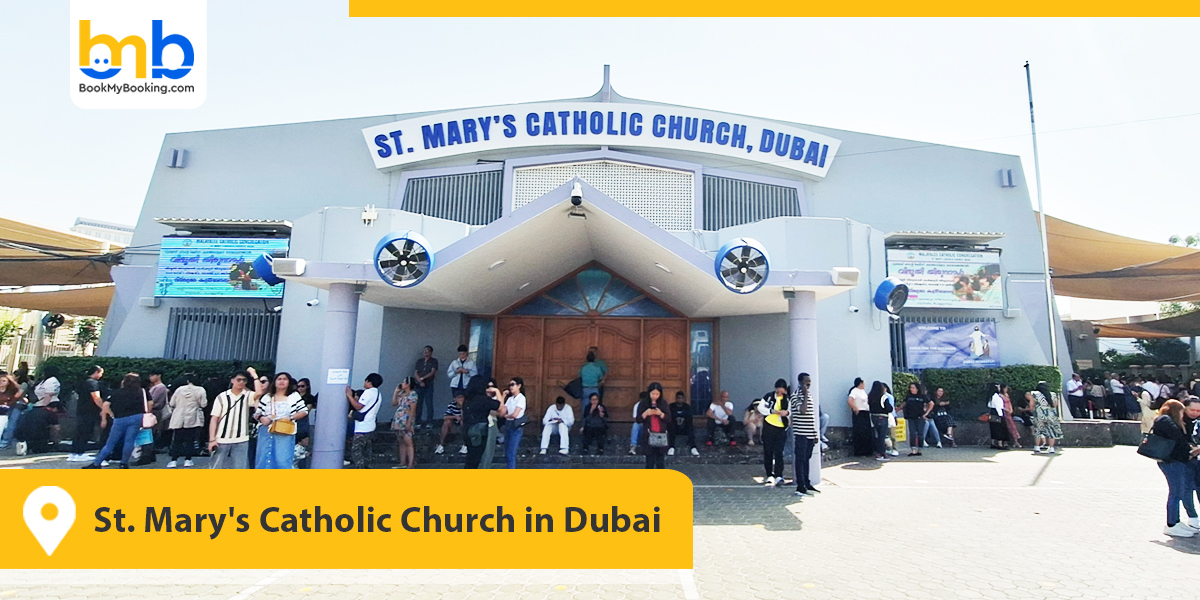
The church was established in 1967. St. Mary's Catholic Church in Dubai is one of the most famous Christian places of worship in the UAE, renowned for its sacred architecture. It serves a large, multicultural congregation and offers daily services in multiple languages. The church is a vibrant hub for spiritual activities, youth groups, and social initiatives. It is known for its warm and inclusive environment; St. Mary's fosters a deep sense of community and faith. It stands as a testament to the UAE's religious tolerance.
19. Sheikh Zayed Mosque in Umm Al Quwain
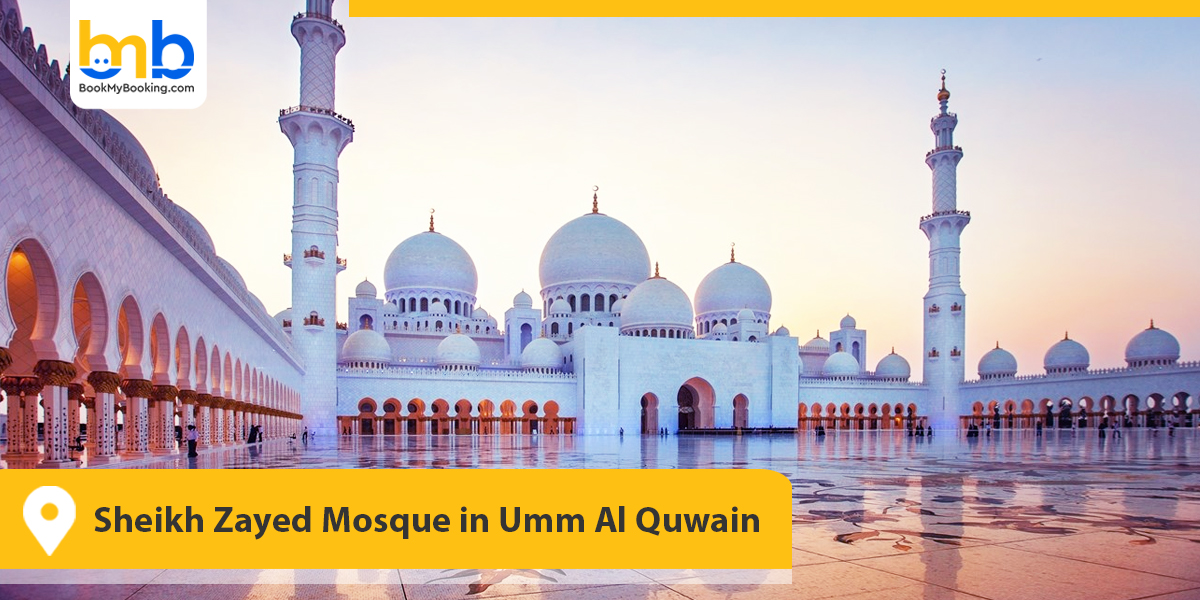
The Sheikh Zayed Mosque in Umm Al Quwain, one of the ancient mosques in the UAE, is the emirate’s most significant Islamic landmark. With its expansive grounds spanning over 24,600 square meters, this elegant white mosque features soaring domes, majestic minarets, and spacious prayer halls. It houses an area for women's Quran memorisation, library facilities, and ritual ablution areas. During Ramadan, it holds Taraweeh and Tahajjud prayers; its evening Adhaan art, delivered by a renowned Afghan muezzin, is considered a spiritual masterpiece for the UAE pilgrimage trail.
20. Mohammed Bin Salme Al Qasimi Mosque in RAK
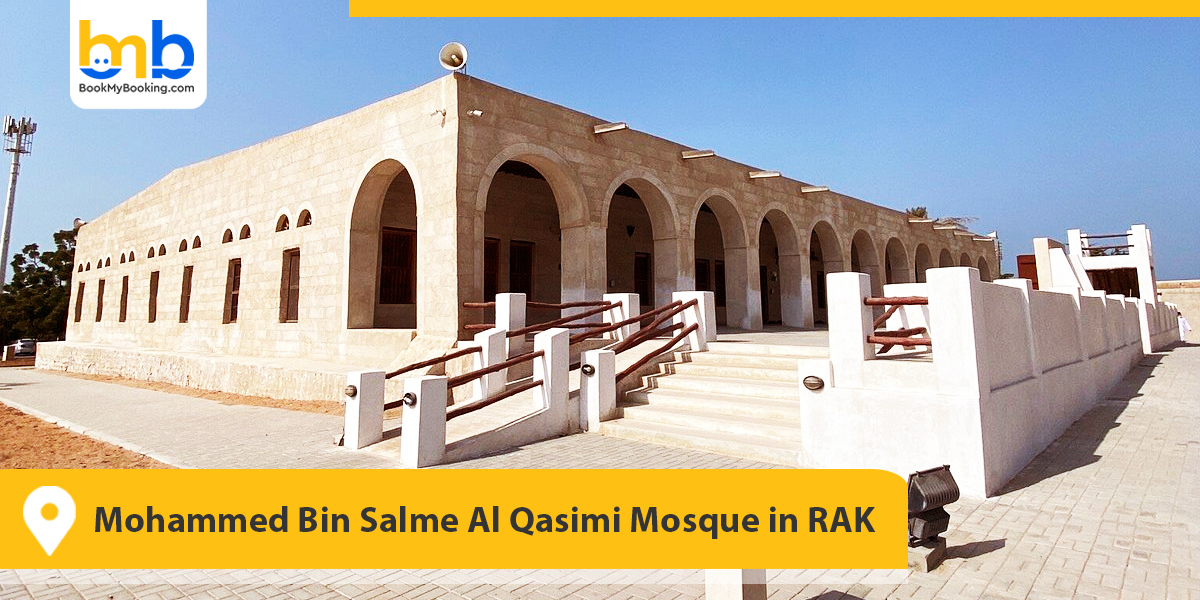
The Sheikh Mohammed Bin Salem Al Qasimi Mosque, situated near the Al Qasimi Corniche in RAK Old Town, is one of the emirate’s oldest and most historically significant mosques. Built in the 18th century in an even older mosque site, it has undergone careful restorations to preserve its authentic coral stone and beach rock sacred architecture in the UAE. Featuring a spacious prayer hall supported by dozens of coral block traditional Emirati craftsmanship with functional elegance. Though modest in scale, its open-air courtyard, arcaded gallery and serene atmosphere invite quiet reflection and cultural appreciation.
21. Maryam Umm Eisa Mosque in Abu Dhabi
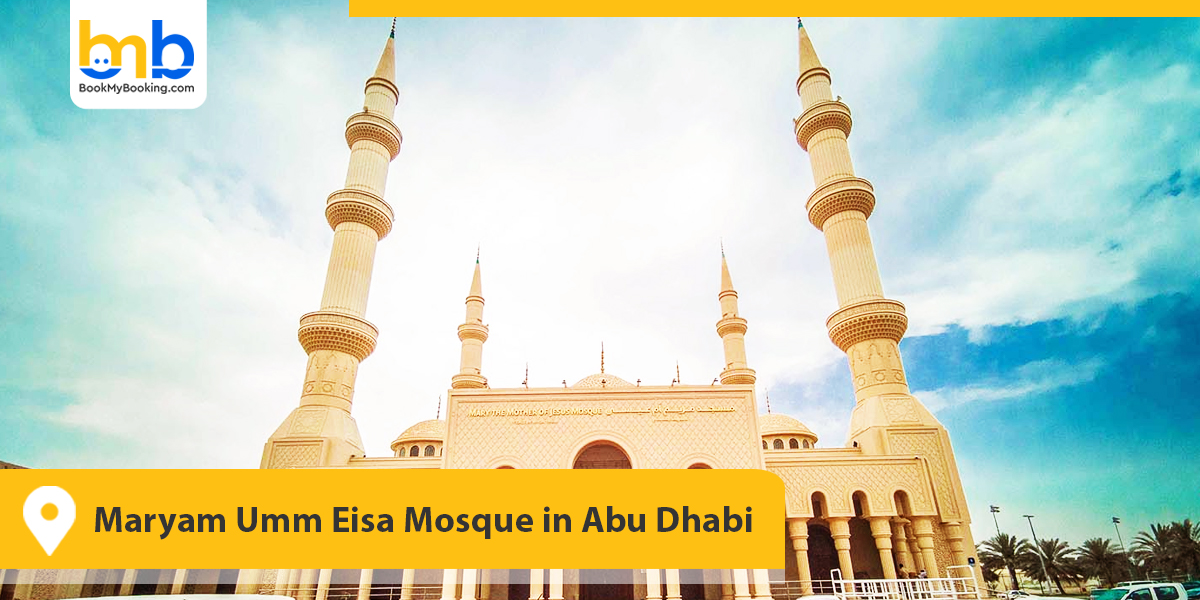
Maryam Umm Eisa Mosque is located in Al Mushrif, Abu Dhabi. It was built in 1989 and was renamed in June 2017 by Sheikh Mohammed bin Zayed Al Nahyan, the best Islamic heritage site in the UAE, to symbolise interfaith harmony, honouring Mary, Mother of Jesus, a revered figure in both Islam and Christianity. The mosque features classic Islamic architecture, characterised by four towering minarets, elegant domes, and a spacious courtyard. Its design offers a serene atmosphere, blending traditional art and modern aesthetics of the hidden spiritual sites in the UAE. Strategically located beside St Andrew’s Church and other Christian institutions, it reinforces Abu Dhabi’s commitment to religious tolerance.

Things to Keep in Mind Before Travelling to Temples and Mosques
1. Dress Properly
- Temples - Wear clothing that covers your shoulders and knees. Traditional attire is always respectful at the traditional prayer halls in the UAE.
- Mosques- Require men to wear full-length pants, and women are expected to adequately cover their hair, arms, and legs, often with a scarf and abaya, which is sometimes provided on site.
2. Remove Footwear
- Always remove your shoes before entering the main prayer area in both temples and historic mosques in the UAE.
3. Maintain Silence and Respect
- Keep your voice low in and around the building.
- Avoid high-traffic areas, phone calls, or public demonstrations of affection.
4. Avoid taking pictures in sacred areas.
- In some places, photography stops, especially during prayer or rituals.
- Always ask for permission or check for signage at ancient mosques in the UAE.
5. Follow gender -specific rooms.
- In different mosques, men and women have different prayers.
- Respect boundaries and signs indicating restricted areas.
6. Specific Tips for Mosques
- You may be asked to perform wudu, a ritual washing before entering prayer areas.
- Use designated facilities respectfully and quietly at the Islamic heritage sites in the UAE.
7. Non Muslim Visitors
- Many mosques allow non Muslims but only at certain times or days.
- Guided tours are often available; follow the guide's instructions and timeline.
8. Avoid Prayer Disruption
- Do not walk in front of people praying.
- Refrain from moving or touching any prayer items.
9. Offerings and Rituals
- It's respectful to bring fruits or sweets as offerings at the hilltop shrines in the UAE.
- Participate quietly in aarti or puja rituals if you are invited.
- Avoid Leather Items
- Many Hindu and Jain temples prohibit the use of leather belts, wallets, or bags due to their religious beliefs.
10. No Touching of Dietes or Priests
- Do not touch idols or enter sanctums unless you are sure it's allowed when you are going on a UAE pilgrimage trail.
- Interactions with priests should be respectful and minimal unless invited.
11. Mind your Feet
- Never point your feet toward altars, dietes or people.
- Sitting cross-legged is usually preferred.
12. Carry a Scarf or Shawl
- Especially useful for covering your head or shoulders when needed.
13. Time Your Visit Wisely
- Avoid visiting during prayer times, fasts or religious holidays unless you intend to participate in the heritage spiritual sites in the UAE.
14. Follow Local Customs
- Always be observant and adaptive to the behaviour of locals and devotees.
General Cultural Etiquette in the UAE
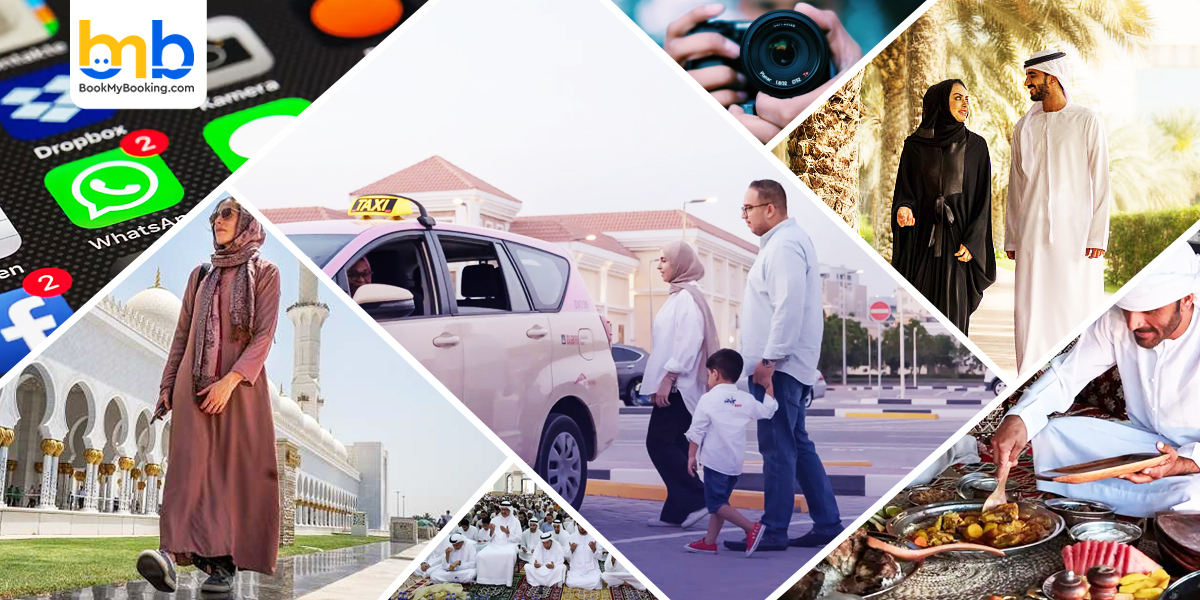
Visiting the places in religious tourism in the UAE offers a unique blend of modern luxury and traditional influences that captivate travellers. While the country welcomes tourists, it is necessary to understand its cultural etiquette to ensure a respectful and pleasant experience. Understanding the correct dress code and local customs helps visitors navigate UAE's social norms. Connecting an E-SIM for the UAE enhances the travel and spiritual tourism experience in the UAE, allowing tourists to access real-time cultural videos, explore local attractions, and engage with local hosts. Whether you're travelling for business or vacation, the UAE ensures a smooth and culturally respectful journey to help you understand the dos and don'ts of etiquette.
1. Respecting Local Dress Codes
While the UAE is home to cosmopolitan cities like Dubai and Abu Dhabi, modest dressing is still appreciated, especially in public areas, when you are visiting traditional prayer sites in the UAE. Tourists should wear clothing that covers their shoulders and knees in malls, religious sites, and government buildings. Swimwear is acceptable at hotel pools and beaches, but should not be worn in public spaces. In mosques, women may be required to wear an abaya and headscarf, which are often provided at entrance points. Using an eSIM for UAE travellers can quickly look up dress code recommendations and ensure they adhere to cultural expectations at the historic sites in the emirates.
2. Display of Affection
Public displays of affection, such as embracing and kissing, should be avoided in public places outside, especially when admiring the UAE mosque architecture. Publicly powerful behaviour or disruptive behaviour is also noted. With an ESIM, Travellers can use moving label guides, allowing them to interact in various social environments. Public displays of affection, such as kissing or hugging, are considered inappropriate and are prohibited in the UAE, especially in public areas. Such behaviour can lead to warnings, fines, or even legal action at Islamic spiritual heritage sites in the UAE. Visitors are advised to respect local customs and maintain modesty to avoid any issues.
3. Food courtesy and hospitality
Hospitality is an integral part of Emirati culture, and tourists can often find themselves invited to traditional meals. When eating with local people, it is customary to use your right hand to eat and accept food or drink, as the left hand is often considered impure. Removing shoes before entering a local house is a sign of respect at historic religious landmarks in the UAE. The license is permitted in licensed areas, but it should not be consumed in public places. A reliable ESIM enables travellers to discover local tips, book restaurant reservations, and easily find cultural food experiences.
4. Honour religious practice
Islam is woven deep into daily life in the UAE, and visitors should take care of religious customs. During Ramadan, fasting is observed by abstaining from eating, drinking, and smoking in public daylight. Visitors should also be aware of prayer times, as some businesses may close shortly for prayer. Ancient mosques in the UAE are open to visitors during specified hours. Tourists are expected to be politely dressed when entering religious places and follow the specific guidelines. Connecting ESIM enables passengers to explore the prayer program, discover the mosque, and learn more about local traditions in real-time.
5. Photography and guidelines for social media
While Dubai and Abu Dhabi offer fantastic landscapes and iconic sites, it is necessary to be aware of photography sanctions. Taking pictures of government buildings, military places, and residents, especially women, without permission is prohibited at the hidden spiritual sites in the UAE. Many cultural sites have clear signage regarding photography rules, and asking for consent before taking pictures of individuals is a sign of respect. With an eSIM, tourists can research photography regulations, use transaction apps to request permission, and share their travel experiences while respecting privacy laws.
6. Using Public Transport and Taxis
Public transportation in the UAE, including the Dubai Metro, buses, and taxis, adheres to structured guidelines that promote religious tourism in the country. Priority seating is designated for women and families; men should avoid sitting in these areas unless specifically permitted. In taxis, solo female travellers often prefer to sit in the back seat as a sign of cultural respect. Eating, drinking, and littering on public transport are strictly prohibited and may result in fines with an eSIM travel plan. With an ESIM, passengers can use live transport programs, order through an app, and easily navigate the city without relying on public transport, which should be included in your UAE spiritual travel guide.
7. Follow legal and social guidelines
The UAE has strict laws on behaviour in public and online places. Swearing, making rude gestures, and using aggressive comments can also lead to legal consequences in digital communication. It is forbidden to post derogatory remarks or controversial opinions about the government, religion, or the royal family on social media platforms when you are admiring the sacred architecture of the UAE. Drug laws are strict, and even some prescription drug possession requires proper documentation. Passengers should research any applicable legal restrictions before travelling. The use of ESIM ensures easy access to local rules and emergency contact numbers, which helps tourists stay informed and comply with the country's laws.
Best Time to Visit the Spiritual Sites in the UAE
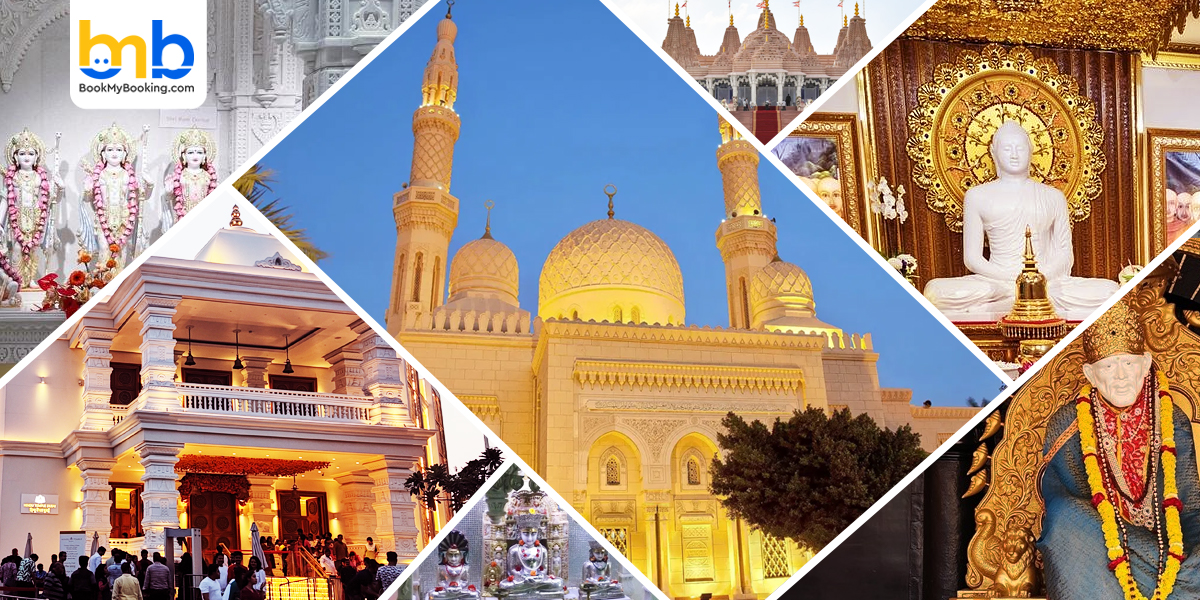
The best time to visit heritage spiritual sites in the United Arab Emirates is during the cooler months, from November to March, when the weather is pleasant for exploring both indoor and outdoor areas of worship. During this period, visitors can comfortably go to mosques, temples and churches without being disadvantaged by excessive heat. In the morning and late afternoon, there are ideal times to escape the crowds and experience the best of the city for spiritual tourism in the UAE. The temperature at this time of year is cold, which requires light jackets or sweaters. However, if you want to travel to the beaches, you can plan the journey in October, March or April when the weather is warm. From June to September, the months experience warm and humid weather conditions, which is the time for summer sales and the best time to go diving.
Final Takeaway on Spiritual Sites Visit in the UAE
Hidden spiritual sites in the UAE reflect the nation's cultural diversity and religious tolerance. These holy places serve not only as places of worship but also as cultural landmarks, contributing to the country's rich heritage. Visitors can experience a range of religious practices and cultural events that showcase the UAE's commitment to inclusivity and unity. Plan a trip with BookMyBooking.com for spiritual tourism in the UAE and explore these remarkable temples, ensuring a memorable and enlightening journey.


